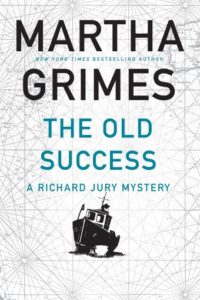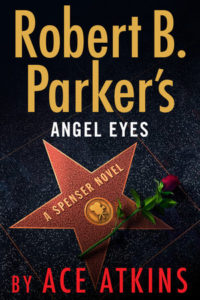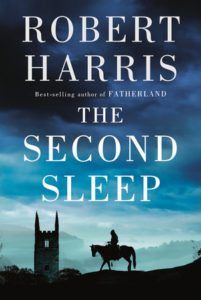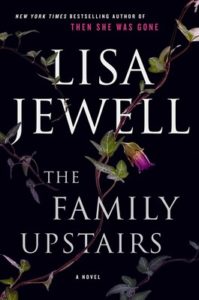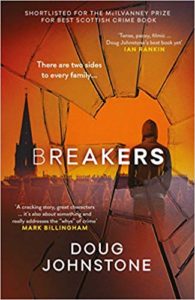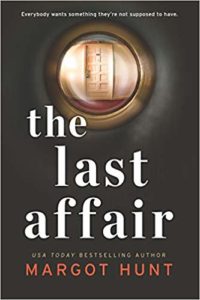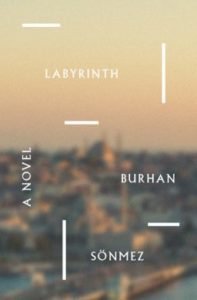At the start of every month, CrimeReads staff members look over all the great crime novels, thrillers, and mysteries coming out in the weeks ahead and make recommendations based on what they’re reading and what they can’t wait to read. Check back over the course of the month for more suggestions for feeding your crime habit.
Alan Furst, Under Occupation (Random House)
Alan Furst will always deliver a satisfying espionage thriller. In this WWIII-set thriller, an unsuspecting writer receives a document from a man who dies immediately thereafter. The writer thinks the message might contain blueprints for a weapon, but he knows that, whatever it is, he has to get it in the hands of the Allied forces as soon as possible. A classic, gripping premise.—Olivia Rutigliano, CrimeReads Editorial Fellow
Joseph Kanon, The Accomplice (Atria)
While Alan Furst is forever fascinated by the lead up to Word War II, Joseph Kanon is besotted with the complexities of the war’s long aftermath. His latest, The Accomplice, takes us on a Nazi hunter’s last quest—an old man spots a Nazi doctor who never came to justice, and sends his CIA-employed nephew to Buenos Aires to bring the doctor to justice. When Kanon’s CIA protagonist arrives in Argentina, he plans to infiltrate the German ex-pat community through seducing the war criminal’s daughter, herself an ambiguous figure who represents the torn allegiances of post-war Germany.—Molly Odintz, CrimeReads associate editor
Martha Grimes, The Old Success (Atlantic Monthly)
It’s the twenty-fifth Richard Jury mystery, and to celebrate this landmark number, the book contains not one, but three mysteries. Hooray! And Jury has to team up with two unlikely detectives to solve them all.—OR
Ace Atkins, Robert B. Parker’s Angel Eyes (Putnam)
It’s hard to find another detective series more closely linked to a city than Spenser is with Boston. RBP and his iconic private eye are towering figures in the city’s recent literary lore. But that doesn’t mean that every now and again it’s not pleasant to take a little excursion outside the city walls. In this latest installment to the series, now with the very able Ace Atkins at the helm, Spenser travels to Los Angeles to trace a hometown girl gone to Hollywood to try to make it as an actress, now disappeared. The case reunites Spenser with an old apprentice sleuth, Zebulon Sixkill, and gives old Bostonian Spenser plenty of opportunity to opine on the strange alien life Angelenos have developed for themselves. It’s a case, a culture clash, and of course another rock-solid addition to the Spenser case files. —Dwyer Murphy, CrimeReads managing editor
Robert Harris, The Second Sleep (Knopf)
Robert Harris is impossible to predict—he’s written alternative histories of WWII, taught thrillers about ancient Roman conspiracies, and now, a psychological thriller set in a distant future wherein science has failed us. As the slow recovery from the apocalypse continues, the denizens of The Second Sleep are transitioning from a church-dominated feudal system to an early modern semi-industrial state. When a young priest is sent to a remote valley to say mass for their departed spiritual leader, he soon discovers a community beset by heresy, and full of those who would do anything to find out why their ancestors failed.—MO
Lisa Jewell, The Family Upstairs (Atria)
Jewell has a way with the quietly creepy subgenre of domestic suspense. Her books, this one included, often rely on the kind of passive spying we do on our neighbors and loved ones–the kind of spying that uncovers unsettling secrets. In this book, the heroine, Libby Jones, has reached her twenty-fifth birthday and thus learns what her long dead parents left to her: a house in London’s chichi Kensington neighborhood. But while Libby has been going about her life without incident when she becomes an heiress everything changes: she also learns of the violence in her family’s past, and has no choice but to try and figure out what happened to her parents. —Lisa Levy, CrimeReads contributing editor
Doug Johnstone, Breakers (Orenda)
I admit, I’m always impressed when I get a new Doug Johnstone book because the guy is a frigging astrophysicist and a decent musician as well as a crack crime writer. Part of the Tartan Noir crowd, Doug Johnstone has seamlessly integrated his landscape and atmosphere into his thrillers. That means a bunch of guys on a boozing trip in Smokeheads; the drudgery of journalism in Hit and Run; and here, in Breakers, the kind of family that would encourage a teenage son to join the family larceny business. —LL
Margot Hunt, The Last Affair (MIRA Books)
Nora Holliday is a sensible and efficient woman, running a household with two surly kids and one depressed husband. So is it really a surprise when she begins an affair with her kids’ orthodontist (who’s another parent in her social circle)? Nora’s lover, Josh Landon, has his own perfectionist wife and surly teenagers to deal with–especially his daughter, Abby, who came home from college after she caught her best friend and her boyfriend together. When Abby starts suspecting her father of having an affair, she’s determined to identify the mystery woman. But then her mother is murdered, and everything in their perfectly ordered suburban life blows up. —LL
Anna Lee Huber, Penny For Your Secrets (Kensington)
The third in Anna Lee Huber’s Verity Kent series, which are all set in 1919 England, all reckon with the destruction—political, domestic, and psychological—wrought by World War I. Verity Kent has been struggling to reconnect with her husband, whom she had believed to be dead. But in this third installment, Verity’s friend Ada’s marriage is in trouble—when her veteran husband is found shot and it looks like Ada is responsible. These novels mix thoughtful, intuitive historical detail (like how Europe was shellshocked after the Great War) with clever mystery plotting, to make compelling mysteries that remember history as much as they feel it, emotionally.—OR
Burhan Sönmez, Labyrinth (Other Press)
Sonmez’s latest novel is many-layered mystery with few answers but all the most interesting, searching questions about identity, memory, and intersecting lives. In Istanbul, a blues singer tries to kill himself jumping from a bridge, but wakes up, alive, to find he can’t remember what has happened, who he is, as well as pivotal pieces of the course of recent history and civilization. Traveling the city streets, he begins to piece himself back together, though the fragments come from other stories, other observations and mysteries as well. Labyrinth has been earning comparisons to Borges, and they’re well-deserved, as a sense of intrigue and philosophy pervades this excellent, meditative novel. —DM




